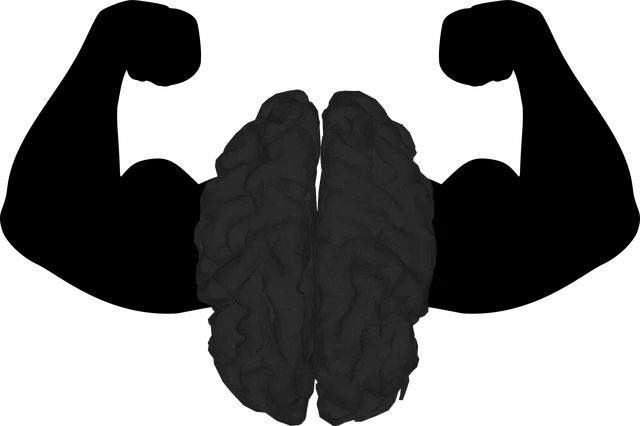Colorado Springs Kaiser Permanente is embracing a holistic approach to mental health care through self-assessment tools and initiatives like Mental Wellness Coaching, prioritizing provider well-being and enhancing patient access to services. A comprehensive self-assessment tool, guided by evidence-based practices and cultural sensitivity, empowers individuals to evaluate emotional well-being, stress levels, coping mechanisms, and social connections. This proactive strategy not only prevents burnout but also offers personalized, effective treatment tailored to diverse mental health needs within the Colorado Springs Kaiser Permanente community.
In today’s digital era, the demand for accessible mental wellness self-assessment tools is growing. This article explores this crucial aspect of mental healthcare, focusing on Colorado Springs Kaiser Permanente’s innovative approach to mental health coverage. We’ll delve into key components making an effective assessment tool, discuss developing a comprehensive framework, and uncover strategies for integrating self-assessments into clinical practice, highlighting benefits for both patients and providers, particularly in the context of Colorado Springs Kaiser Permanente’s mental health services.
- Understanding the Need for Self-Assessment Tools in Mental Health Care
- Colorado Springs Kaiser Permanente's Approach to Mental Health Coverage
- Key Components of an Effective Mental Wellness Self-Assessment Tool
- Developing a Comprehensive Assessment Framework
- Integrating Self-Assessment into Clinical Practice: Strategies and Benefits
Understanding the Need for Self-Assessment Tools in Mental Health Care

In today’s fast-paced and demanding healthcare landscape, particularly within mental health care settings like Colorado Springs Kaiser Permanente, there is a growing recognition of the importance of self-assessment tools to support provider well-being. The integration of these tools is crucial for addressing the unique challenges faced by healthcare professionals, such as burnout, which can significantly impact patient care and outcomes. By empowering providers with resources to regularly evaluate their mental wellness, organizations like Kaiser Permanente in Colorado Springs can facilitate proactive interventions and foster a culture of resilience.
This need is further underscored by the increasing emphasis on holistic patient care that extends beyond clinical treatments. The development of self-assessment tools, coupled with supportive programs like Mental Wellness Coaching and community outreach initiatives, plays a pivotal role in preventing burnout among healthcare providers. Such strategies not only contribute to improved provider satisfaction but also enhance patient access to consistent and compassionate mental health services, creating a virtuous cycle beneficial for both healthcare workers and the communities they serve.
Colorado Springs Kaiser Permanente's Approach to Mental Health Coverage

Colorado Springs Kaiser Permanente has been recognized for its comprehensive approach to mental health coverage, prioritizing emotional healing processes and emotional well-being promotion techniques among its patient population. The organization’s commitment extends beyond traditional medical care, incorporating cultural sensitivity in mental healthcare practice to cater to a diverse range of needs. By integrating holistic wellness programs and innovative self-assessment tools, Kaiser Permanente aims to empower individuals with the resources necessary for maintaining optimal mental health.
This forward-thinking strategy involves developing user-friendly self-assessment platforms that facilitate early detection of mental health issues. Through these tools, patients can gain valuable insights into their emotional states, enabling them to take proactive measures towards enhancing their overall well-being. By fostering an environment that encourages open dialogue and cultural understanding, Kaiser Permanente ensures that emotional healing processes are tailored to each individual’s unique background and experiences.
Key Components of an Effective Mental Wellness Self-Assessment Tool

An effective Mental Wellness Self-Assessment Tool should encompass several key components to accurately gauge an individual’s mental health status and needs. First and foremost, it must be comprehensive, covering various aspects of mental wellness such as emotional well-being, stress levels, coping mechanisms, and social connections. This holistic approach, inspired by the Mind Over Matter Principles advocated by healthcare providers like Colorado Springs Kaiser Permanente, ensures that users receive a nuanced understanding of their mental health landscape.
Additionally, cultural competency training for both the tool developers and end-users is vital to ensure inclusivity and sensitivity. Incorporating Self-Awareness Exercises can significantly enhance the assessment’s effectiveness, encouraging users to reflect on their thoughts, feelings, and behaviors. These exercises should be designed to promote open and honest self-reflection, which is crucial for identifying potential mental health concerns and developing targeted strategies for improvement.
Developing a Comprehensive Assessment Framework

Developing a comprehensive assessment framework for mental wellness self-assessment tools is essential to ensure effectiveness and accuracy. This involves integrating various components that capture an individual’s emotional, cognitive, and social well-being. By drawing on evidence-based practices such as Social Skills Training and Crisis Intervention Guidance, these tools can provide a holistic view of a person’s mental health status. For instance, incorporating aspects of Emotional Healing Processes can help assess and address underlying emotional traumas that may not be immediately apparent.
Such frameworks should consider the unique needs of diverse populations, including those covered by Colorado Springs Kaiser Permanente mental health coverage. This might involve tailoring assessments to account for cultural differences or specific life challenges faced by individuals in this region. A well-rounded assessment tool should also allow for regular monitoring and tracking of progress over time, enabling healthcare providers to offer timely interventions and support tailored to each individual’s evolving needs.
Integrating Self-Assessment into Clinical Practice: Strategies and Benefits

Integrating self-assessment tools into clinical practice has emerged as a powerful strategy in the mental health realm, particularly within institutions like Colorado Springs Kaiser Permanente that prioritize holistic patient care. These tools empower individuals to actively participate in their mental wellness journey by providing a deeper understanding of their thoughts, emotions, and behaviors. By incorporating self-assessments, clinicians can gain valuable insights into patients’ experiences and perceptions, enabling more personalized treatment plans tailored to their unique needs.
The benefits are multifaceted; self-assessment fosters self-awareness and promotes active engagement in therapy. It helps identify areas of concern, such as symptoms of mental illness, that may not be readily apparent during traditional clinical interviews. Furthermore, these assessments contribute to Mental Illness Stigma Reduction Efforts by encouraging individuals to view their mental health with a non-judgmental lens, fostering self-acceptance and motivation for change. Moreover, regular self-assessment can facilitate Self-Esteem Improvement and Social Skills Training, as it enables individuals to track progress and develop coping strategies that enhance overall well-being.
The development of mental wellness self-assessment tools is a crucial step in enhancing access to mental healthcare, as evidenced by Colorado Springs Kaiser Permanente’s innovative approach to mental health coverage. By integrating these tools into clinical practice, we can empower individuals to take an active role in their mental well-being. An effective assessment framework should be comprehensive, yet user-friendly, capturing key components that reflect the intricate nature of mental wellness. This strategic integration offers numerous benefits, including improved patient engagement, early intervention, and more personalized treatment plans, ultimately revolutionizing mental healthcare delivery.






